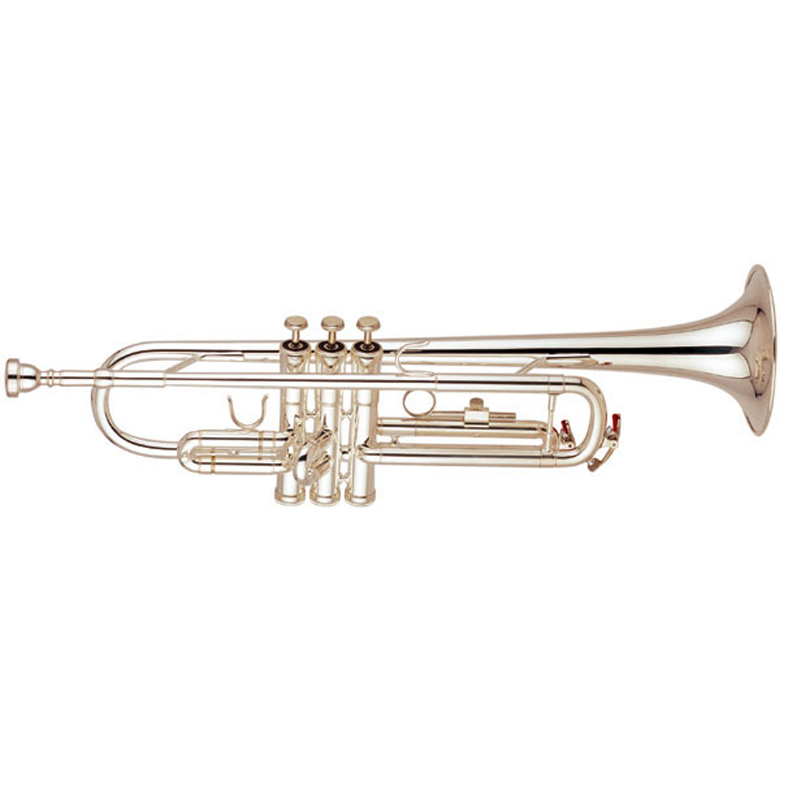Do you know how to look after your trumpet? Spending the time to care for your musical instrument will help to lengthen its life and allow you to get the best out of it. To help we have put together this simple trumpet care guide.
1. No Food or Drink
Where possible try not to eat food or consume sugary drinks before you play as anything in your mouth can end up in the trumpet and can cause it to clog up.
2. Keep It Safe
Avoid leaving your trumpet lying around anywhere it can get knocked over or bashed as this could cause damage that may end up being costly to repair. When you are not playing your brass trumpet make sure you put it back in its order to keep it safe.
3. Well Oiled
Before playing check that the trumpet valves are well oiled. If not, you need to apply 2-3 drops of valve oil to the valves. If you don't regularly oil your valves they will become sticky.

4. Wipe It Down
After playing take some time to wipe your trumpet down. Dirt, oil, and sweat from your hands can cause damage to the lacquer over time, cleaning your trumpet after use will help to avoid that.
If you have a professional trumpet with a silver finish over time you may find this darkens due to oxidisation, to avoid this you can use a silver cloth or silver polish to keep the finish looking its best. Make sure not to use a silver cloth on a lacquer finish and vice versa.
5. Clean the Mouthpiece
Wipe down your mouthpiece after playing and every few weeks clean the mouthpiece in warm soapy water using a mouthpiece cleaning brush to scrub the inside. Make sure to thoroughly rinse off the soapy water once clean.
6. Remove Moisture From the Slides
After playing you want to carefully remove each slide from the trumpet and clear it of any moisture. When removing the slides ensure you are holding down the correlating valve and gently pull the slide out, you can then remove the moisture. Then remove moisture from the body of the trumpet using the water key. To do this press down the water key and blow air through the trumpet.
7. Clean the Valves
Every few weeks you will need to clean the valves. One at a time (to avoid mixing them up) take them out of the casing and clean them using a polishing cloth or warm soapy water. Clean both the valves and the casing making sure to avoid getting the springs and felt pads wet as this will damage them. Once clean, allow them to air dry and then apply a few drops of valve oil before replacing the valve in its casing. Make sure to put the valve back in the correct position and press up and down to allow the oil to evenly coat the whole valve.
8. Grease the Slides
The slides will also need cleaning and re-greasing every few weeks. To do this remove them from the body of the trumpet as above. Using a cloth clean the slides of any dirt. Once clean apply slide oil to the first and third valve slides and slide grease to the second valve and main tuning slide.
9. Deep Clean
Every few months you will need to clean the inside of your trumpet. To do this mix a solution of warm water with a small amount of mild dish soap in a basin. Remove the valves, slides, and the mouthpiece from the body of the trumpet. Place the trumpet and the slides in the water mixture for a couple of minutes and then using trumpet cleaning brushes and cloths clean the trumpet, the inside tube, and the slides.
Once clean, rinse the soap from the trumpet using clean water. Gently dry the trumpet then leave it on a towel to finish air drying. Also take this opportunity to clean the valves and mouthpiece too. Once clean oil and grease the valves and slides as above and then re-assemble the trumpet.
10. Don't Force It
If you ever have any problems removing your valves, slides, or mouthpiece from the trumpet do not force them as you could damage the instrument. Instead take your trumpet to a professional and they can remove them for you.
11. Get It Fixed
If you have damaged your trumpet, take it to professional as soon as possible to have it repaired. Don't be tempted to try and fix any damage yourself as you may cause more damage further down the line. If ever you are concerned that your trumpet is damaged or not playing properly rather than guess or use home remedies take it to a professional to be inspected.

